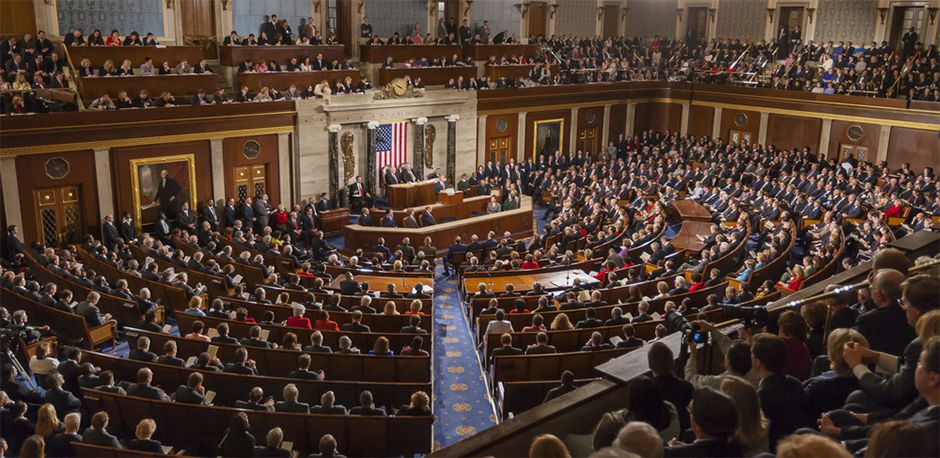Neeru Khosla is not your typical billionaire’s wife. She doesn’t spend her time stocking up on the latest designer trends or writing checks to the first charity that comes calling. Instead, for the last eight…
Author: Impact NYC
SV Academy Just Landed $9.5 Million to Offer Tuition-free Training That Puts People in Tech Jobs
When you live in Silicon Valley, it feels like nearly everyone works in tech and that entry into the industry is wide open. Of course, the reality is very different. Even as software eats the world, not everyone has the training or connections to land a high-paying job in either the traditional tech industry or with a company that’s actively embracing its digital future.
IMPACT Expert and Presidential Candidate 2020 Proposes a Freedom Dividend
Andrew yang, the New York entrepreneur running for the Democratic presidential nomination, cannot be accused of lacking confidence. “I only see two outcomes in this race. One, I win. Or, two, someone else wins and takes the vast majority of my ideas into the White House,” he says from his campaign headquarters in midtown Manhattan. By branding himself a doomsayer of the impending automation apocalypse, which he warns will destroy most jobs and roil society, Mr Yang has cultivated a devoted following—leapfrogging better-known candidates like Bill de Blasio, the city’s mayor, and Kirsten Gillibrand, one of New York’s senators.
The A.I. Paradox: How Robots Will Make Work More Human
We live in a world where technological innovation is a constant. The recent pace of technological advancement is unprecedented. For instance, by 2030, it is expected that there will be 500 billion devices and objects connected to the Internet. The impact of automation, artificial intelligence, and the Internet of Things (IoT) is being felt almost everywhere, in all industries, jobs and everyday life. Given this pace of change, it is important to understand and anticipate what this means for future jobs, youth, and society more broadly, so that everyone has an opportunity to participate in the digital economy.
All That Glitters Isn’t Gold: Smart City Initiatives Meet Community Concerns
Advances in technology are exciting and offer incredible opportunities for urban environments. Smart city initiatives provide opportunities for automation, data analytics, and enhanced resource utilization. Likewise, these create potential efficiencies in traffic systems, waste management services, and many other areas. Yet, while these smart initiatives seem like a no-brainer, some communities are not so convinced. To them, there are issues concerning a perceived lack of transparency and privacy. And major tech companies like Sidewalk Labs are learning this the hard way.
The US Naval Academy: Adapting for Modern Naval Leadership Challenges
Bold Business was fortunate to interview the US Naval Academy’s 87th Commandant of Midshipman Captain Robert B. Chadwick II at the Zephyrhills Jump Zone where he was participating with the Naval Academy Parachute team. In this exclusive interview with Associate Publisher John R. Miles, himself a 1993 Academy graduate, Captain Chadwick discusses how the Academy is evolving with modern warfare and leadership needs.
Outdated Laws Must Go
The legal highway may lead by pointing towards the direction of justice, but the road is definitely littered with outdated laws and statutes that serve no use other than to confound and confuse. For example, there’s a jurisdiction in Wisconsin where it’s illegal to eat ice cream on Sundays. In North Dakota, meanwhile, there’s a regulation against serving pretzels with beer. And in a certain city in Ohio, women are prohibited from patent leather shoes. Of course, the actual enforcement of these ridiculous codes happens rarely–if ever–but it still begs the question: Why? Why keep them on the books?
Sure, maybe when these laws were codified there was a legitimate community concern being addressed. But times have changed–indoor plumbing has since been perfected, and electricity can be found in every home. Shouldn’t something be done about this legal detritus? In this Bold Interview, James Copland of the Manhattan Institute suggests that we need to get busy repealing these old outdated laws.
How Technical Changes in the Law Can Lead to Progress or Stalling of Affordable Housing Initiatives
In southwest Connecticut, the gap between rich and poor is wider than anywhere else in the country. Invisible walls created by local zoning boards and the state government block affordable housing and, by extension, the people who need it.
A Bump in the Road, but the Fight for More Housing Continues
Yesterday, the Chairman of the Senate Appropriations Committee announced that my housing bill – SB 50, the More HOMES Act – would not receive a committee vote and would not be moving forward this year. If this decision stands, then SB 50 will come up for a vote next January. If we have an opportunity to move the bill forward this year, we will absolutely do so.
This decision by the Appropriations Committee Chair, while very disappointing, isn’t the end of the road for SB 50. The bill is alive and well, albeit delayed, and I am 100% committed to passing it, as is our broad coalition of labor, environmental, affordable housing, business, student, and senior organizations. California is in a deep housing crisis, due to decades of bad housing policy, and we must shift course for our future. We need bold action to address California’s 3.5 million home shortage, which is equal to the combined shortage of the other 49 states.
SB 50 legalizes more housing near public transportation and job centers. It received nearly unanimous bipartisan 9-1 and 6-1 votes in its two committee hearings, has 18 bipartisan co-authors from all over California, and is backed by a massive coalition of labor, environmental, affordable housing, business, senior, and student organizations. A San Francisco poll showed 74 percent support for the bill, and two recent statewide polls show 66% and 61% support, with strong support across all regions of the state and all demographics. People understand that we need more homes and that we need those homes in job centers and near public transit, as opposed to more sprawl and resulting carbon emissions.
California’s failed housing approach is pushing people into homelessness, poverty, and mega- commutes, is forcing working families out of their communities and out of the state entirely, and is undermining California’s climate goals. We’re either serious about solving this crisis, or we aren’t. At some point, we need to make the hard political choices necessary for California to have a bright housing future.
All of these organizations and leaders agree, we need More HOMES and we need them now:

I want to thank the many people who have helped move this bill forward. We could not do this work without you.
Sincerely,
Scott Wiener
Senator











